 W
WAnurag Agrawal is an American professor of ecology, evolutionary biology, and entomology who has written over a 150 peer-reviewed articles, which earned him an h-index of 74. He is the author of a popular science book, Monarchs and Milkweeds from Princeton University Press, and is currently the James A. Perkins Professor of Environmental Studies at Cornell University.
 W
WGregory P. Asner is an American ecologist whose global work has focused on ecosystems, conservation, and climate sciences. He has developed technology to access and analyze large amounts of data about ecosystems, including assessing carbon emissions, coral reef resilience, and biodiversity. He is the founder of the Global Airborne Observatory and the creator of Carnegie Landsat Analysis System (CLAS) and CLASlite. Since 2019, he has been the Director of Arizona State University's Center for Global Discovery and Conservation Science.
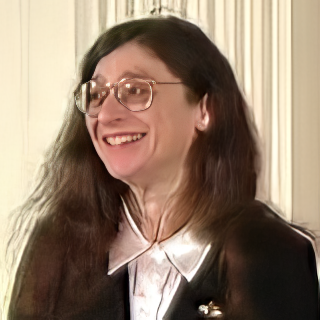 W
WMay Roberta Berenbaum is an American entomologist whose research focuses on the chemical interactions between herbivorous insects and their host plants, and the implications of these interactions on the organization of natural communities and the evolution of species. She is a member of the National Academy of Sciences and was named editor-in-chief of its journal, Proceedings of the National Academy of Sciences in 2019; she is also a member of the American Philosophical Society (1996), and a fellow of the American Academy of Arts and Sciences (1996). She has held a Maybelle Leland Swanlund Endowed Chair in entomology since 2012, which is the highest title a professor can hold at the University of Illinois. In 2014, she was awarded the National Medal of Science.
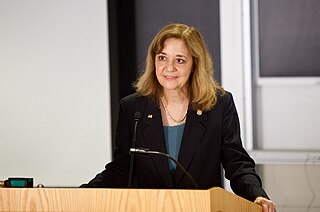 W
WRosina M. Bierbaum is currently the Roy F. Westin Chair in Natural Economics and Research Professor at the University of Maryland's School of Public Policy. She is also a professor and former dean at the University of Michigan School of Natural Resources and Environment (SNRE). She was hired in October 2001, by then-University of Michigan President, Lee Bollinger.
 W
WStephen Russell Carpenter is an American lake ecologist who focuses on lake eutrophication which is the over-enrichment of lake ecosystems leading to toxic blooms of micro-organisms and fish kills.
 W
WJuan Carlos Castilla Zenobi is a marine biologist. He received his PhD from the University of Wales. Since 1965, he has been a faculty member at the Pontificia Universidad Católica de Chile. In 1985, he published a paper on a study which focused on a part of the Chilean coastline from which humans had been excluded. He is a recipient of the 1996 TWAS Prize.
 W
WGretchen C. Daily is an American environmental scientist and tropical ecologist. She has contributed to understanding humanity's dependence and impacts on nature, and to advancing a systematic approach for valuing nature in policy, finance, management, and practice around the world. Daily is co-founder and faculty director of the Stanford Natural Capital Project, a global partnership that aims to mainstream the values of nature into decision-making of people, governments, investors, corporations, NGOs, and other institutions. Together with more than 300 partners worldwide, the Project is pioneering science, technology, and scalable demonstrations of inclusive, sustainable development.
 W
WPierre Dansereau was a Canadian ecologist known as one of the "fathers of ecology".
 W
WRuth S. DeFries is an environmental geographer who specializes in the use of remote sensing to study Earth's habitability under the influence of human activities, such as deforestation, that influence regulating biophysical and biogeochemical processes. She was one of 24 recipients of the 2007 MacArthur Fellowship, and was elected to the United States National Academy of Sciences in 2006.
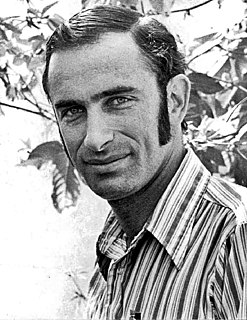 W
WPaul Ralph Ehrlich is an American biologist, best known for his warnings about the consequences of population growth and limited resources. He is the Bing Professor Emeritus of Population Studies of the Department of Biology of Stanford University and President of Stanford's Center for Conservation Biology.
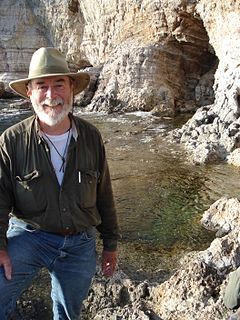 W
WExequiel Ezcurra is a Mexican plant ecologist and conservationist. His highly interdisciplinary work spans desert plant ecology, mangroves, island biogeography, sea birds, fisheries, oceanography, and deep-sea ecosystems.
 W
WDeborah Esther Goldberg is an American ecologist and Margaret B. Davis Distinguished University Professor and Arthur F. Thurnau Professor in the Department of Ecology and Evolutionary Biology at the University of Michigan.
 W
WEville Gorham was a Canadian-American scientist whose focus has been understanding the chemistry of fresh waters and the ecology and biogeochemistry of peatlands. In the process, Gorham made a number of practical contributions that included discovering the influence of acid rain in lake acidification, plus the importance of the biological magnification of radioactive fallout isotopes in northern food chains. The former led to legislation and redesign of the power plants of the world to scrub sulfur, and the latter was an early step toward the establishment of an atmospheric nuclear test ban treaty.
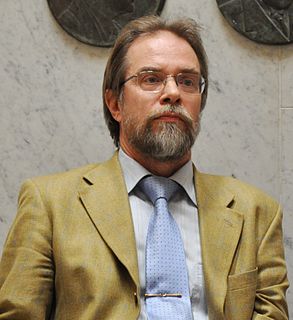 W
WIlkka Aulis Hanski was a Finnish ecologist at the University of Helsinki, Finland. The Metapopulation Research Center led by Hanski, until his death, has been nominated as a Center of Excellence by the Academy of Finland. The group studies species living in fragmented landscapes and attempts to advance metapopulation ecology research. Metapopulation ecology itself studies populations of plants and animals which are separated in space by occupying patches.
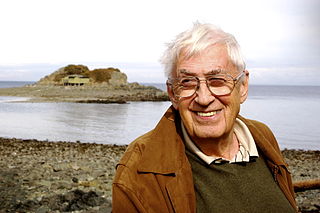 W
WCrawford Stanley (Buzz) Holling, was a Canadian ecologist, and Emeritus Eminent Scholar and Professor in Ecological Sciences at the University of Florida. Holling was one of the conceptual founders of ecological economics .
 W
WCharles Joseph Krebs is a professor emeritus of population ecology in the University of British Columbia Department of Zoology. He is also Thinker-in-residence at the Institute for Applied Ecology at the University of Canberra, Australia. He is renowned for his work on the fence effect, as well as his widely used ecology textbook Ecology: The Experimental Analysis of Distribution and Abundance.
 W
WRichard Eimer Lenski is an American evolutionary biologist, a MacArthur "genius" fellow, a Hannah Distinguished Professor of Microbial Ecology at Michigan State University, and a member of the National Academy of Sciences. Lenski is best known for his still ongoing 32-year-old long-term E. coli evolution experiment, which has been instrumental in understanding the core processes of evolution, including mutation rates, clonal interference, antibiotic resistance, the evolution of novel traits, and speciation. He is also well known for his pioneering work in studying evolution digitally using self-replicating organisms called Avida.
 W
WGene Elden Likens is an American limnologist and ecologist. He co-founded the Hubbard Brook Ecosystem Study at the Hubbard Brook Experimental Forest in 1963, and founded the Cary Institute of Ecosystem Studies in Millbrook, New York in 1983.
 W
WMargaret D. Lowman, Ph.D. a.k.a. Canopy Meg is an American biologist, educator, ecologist, writer, explorer, and public speaker. Her expertise involves canopy ecology, canopy plant-insect relationships, and constructing canopy walkways.
 W
WJane Lubchenco is an American environmental scientist and marine ecologist who teaches and conducts research at Oregon State University. Her research interests include interactions between the environment and human well-being, biodiversity, climate change, and sustainable use of oceans and the planet. From 2009 to 2013, she served as Administrator of NOAA and Under Secretary of Commerce for Oceans and Atmosphere.
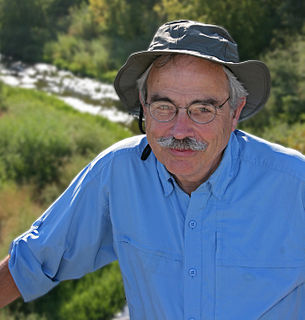 W
WPeter B. Moyle is Distinguished Professor Emeritus in the Department of Wildlife, Fish and Conservation Biology and associate director of the Center for Watershed Sciences at the University of California-Davis. He has studied the ecology and conservation of fishes in freshwater and estuarine habitats in California (US) for over forty years. He has taken a special interest in salmon and various other anadromous fishes. Moyle has authored or co-authored more than 220 publications covering topics such as watersheds, inland fishes, biological invasions, and biodiversity in aquatic ecosystems. His primary areas of research include ecosystems, conservation of aquatic species, habitats, and various ecological impacts.
 W
WNalini Nadkarni is an American ecologist who pioneered the study of Costa Rican rain forest canopies. Using mountain climbing equipment to make her ascent, Nadkarni first took an inventory of the canopy in 1981, followed by two more inventories in 1984.
Ruth Myrtle Patrick was an American botanist and limnologist specializing in diatoms and freshwater ecology. She authored more than 200 scientific papers, developed ways to measure the health of freshwater ecosystems and established numerous research facilities.
 W
WIvette Perfecto is an ecologist and professor at the University of Michigan. Her work focuses on complex ecosystem dynamics and the application of ecological theories to agricultural systems.
 W
WEvelyn Chrystalla "E.C." Pielou was a Canadian statistical ecologist. She began her career as a researcher for the Canadian Department of Forestry (1963–64) and the Canadian Department of Agriculture (1964–67). Later she was professor of biology at Queen's University, Kingston, Ontario (1968–71) and at Dalhousie University in Halifax, Nova Scotia (1974–81) and then Oil Sands Environmental Research Professor working out of the University of Lethbridge, Alberta (1981–86). Pielou was the second woman to win the Eminent Ecologist Award (1986) from the Ecological Society of America. She has contributed significantly to the development of mathematical ecology, the mathematical modeling of natural systems, and wrote six academic books on the subject. She lived in Comox, British Columbia, Canada, and wrote popular books on natural history until her death in July, 2016.
 W
WHugh Phillip Possingham, FAA, is Chief Scientist of The Nature Conservancy, best known for his work in conservation biology. He is also an ARC Laureate Fellow in the Department of Mathematics and the School of Biological Sciences at the University of Queensland.
 W
WMary Eleanor Power is an ecology professor in the Department of Integrative Biology at the University of California, Berkeley. Power is a member of the U.S. National Academy of Sciences, the American Academy of Arts and Sciences, and the California Academy of Sciences. She holds an honorary doctorate from Umeå University, Sweden, and is a recipient of the G. Evelyn Hutchinson Award of the Association for the Sciences of Limnology and Oceanography, and the Kempe Award for Distinguished Ecologists (2004).
 W
WPeter Hamilton Raven is an American botanist and environmentalist, notable as the longtime director, now President Emeritus, of the Missouri Botanical Garden.
 W
WDr Robert Eric Ricklefs is an American ornithologist and ecologist. He is the Curators' Professor of Biology at the University of Missouri, St. Louis.
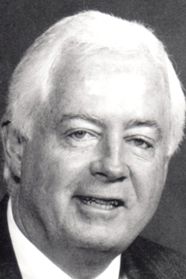 W
WPaul Gillan Risser was an American ecologist and academic from Oklahoma. He served as president of Miami University and Oregon State University before becoming chancellor of the Oklahoma State System of Higher Education.
 W
WDaniel Simberloff is a biologist and ecologist who earned his Ph.D. from Harvard University in 1969. He is currently Gore Hunger Professor of Environmental Science at the University of Tennessee and Editor-in-chief of the journal Biological Invasions.
 W
WJohn Whittle Terborgh is a James B. Duke Professor of Environmental Science at Duke University and Co-Director of the Center for Tropical Conservation. He is a member of the National Academy of Science, and for the past thirty-five years, has been actively involved in tropical ecology and conservation issues. An authority on avian and mammalian ecology in Neotropical forests, Terborgh has published numerous articles and books on conservation themes. Since 1973, he has operated the Cocha Cashu Biological Station, a tropical ecology research station in Manú National Park, Peru.
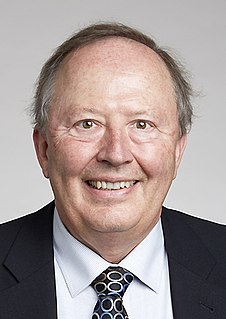 W
WGeorge David Tilman, ForMemRS, is an American ecologist. He is Regents Professor and McKnight Presidential Chair in Ecology at the University of Minnesota, as well as an instructor in Conservation Biology; Ecology, Evolution, and Behavior; and Microbial Ecology. He is director of the Cedar Creek Ecosystem Science Reserve long-term ecological research station. Tilman is also a professor at University of California, Santa Barbara's Bren School of Environmental Science & Management.
 W
WDiana Harrison Wall is the Founding Director of the School of Global Environmental Sustainability, a Distinguished Biology Professor, and Senior Research Scientist at the Natural Resource Ecology Laboratory at Colorado State University. She is an environmental scientist and a soil ecologist and her research has focussed on the Antarctic McMurdo Dry Valleys. Wall investigates ecosystem processes, soil biodiversity and ecosystem services and she is interested in how these are impacted by global change. The Wall Valley was named after her in recognition of her research in the McMurdo Dry Valleys. Wall is a globally recognised leader and speaker on life in Antarctica and climate change.
 W
WEdward Osborne Wilson, usually cited as E. O. Wilson, is an American biologist, naturalist, and writer. His biological specialty is myrmecology, the study of ants, on which he has been called the world's leading expert.
 W
WHerbert Edgar Wright Jr was an American Quaternary scientist. He contributed to our understanding of landscape history and environmental changes over the past 100,000 years in many parts of the world. He studied arid-region geomorphology and landscape evolution, as well as glacial geology and climate history. The study of these topics led him to the study of vegetation development and environmental history and allowed him to define the timing and mechanisms of climate-driven vegetational shifts in North America during the last 18,000 years and to recognize the role of natural fire in the dynamics of northern coniferous forests. He applied these insights to wilderness conservation and landscape management. He covered many other aspects of paleoecology including lake development and paleolimnology, and the history and development of the vast patterned peatlands of Minnesota and elsewhere in the Northern Hemisphere. Although his work was concentrated in Minnesota, he was also involved in a major synthesis of global paleoclimatology. Beyond Minnesota and the Great Lakes region, Wright studied a wide range of research questions elsewhere in North America, and in the Near East, Europe, Asia, Latin America, and Antarctica. He advised over 75 graduate students and mentored many more students, visitors, and colleagues world-wide.